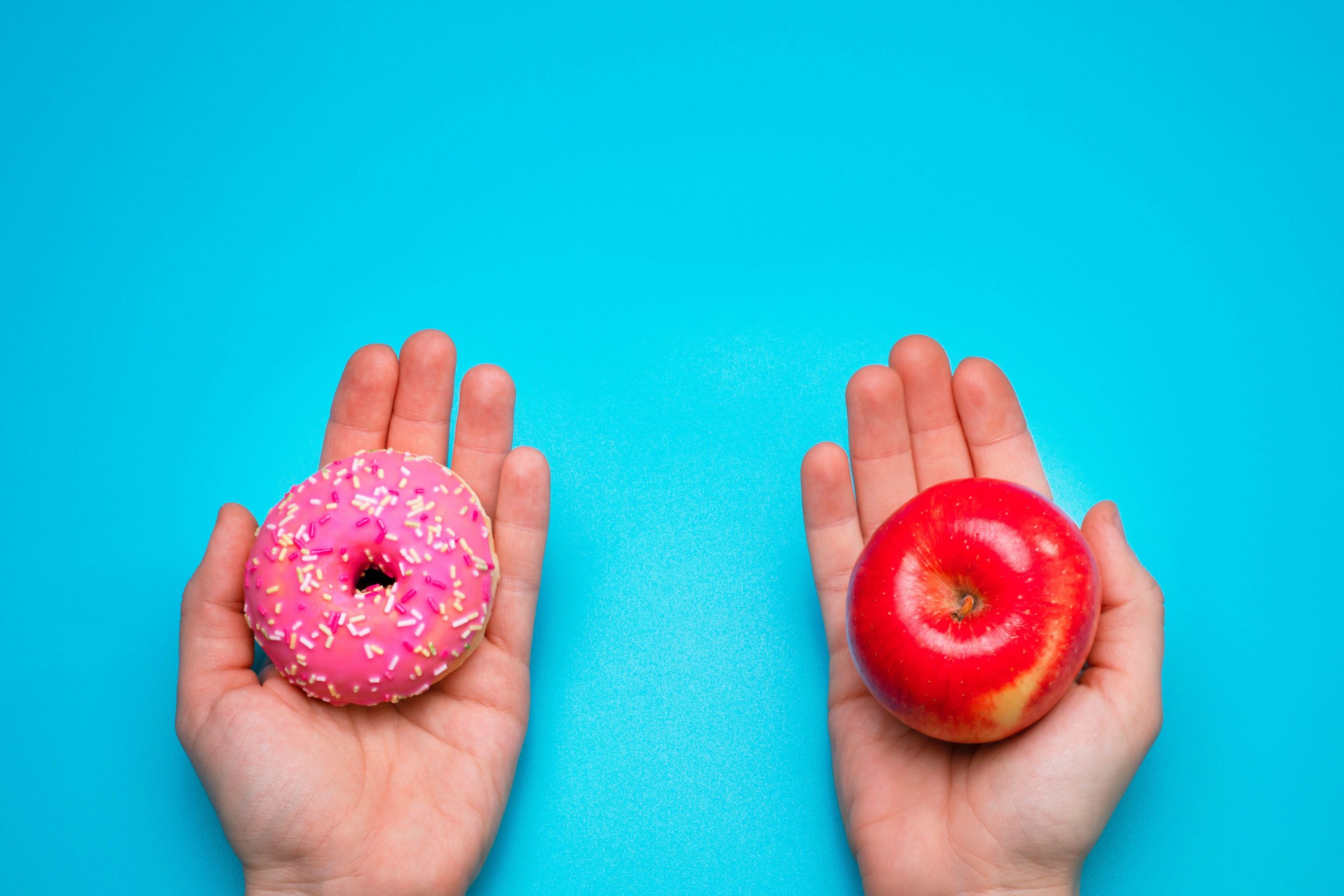4 nutrition myths we all need to stop believing
Still following fad diets in 2022? Experts explain some common food myths
If you’ve ever found yourself Googling phrases like ‘foods to make me lose weight’ or ‘how to lose weight fast’, you may have stumbled across some questionable tips out there.
When it comes to food and nutrition – especially in the context of weight loss – there are lots of weird diets that promise specific ‘results’ if you follow certain ‘rules’. However, these dramatic dietary claims can have a seriously negative impact on both your mental and physical wellbeing, and might actually mean you’re missing out on crucial nutrition.
We asked nutrition experts to talk us through four of the most common diet claims…
No carbs after 6pm?
Perhaps you’ve heard that your body will not burn carbs consumed in the evening and will instead convert that sugar directly into fat, so best to avoid them post-6pm. Actually, it’s not that simple.

According to Lola Biggs, registered dietician at Together Health, “it’s more about what you are eating, and how much of it, rather than when you are eating it. There’s nothing wrong with eating healthy carbs after 6pm, if you choose foods such as nuts, seeds, legumes, vegetables, fruits, and whole grains.
“Whether or not you eat carbs in the evening, the focus is more on portion size and making sure you are burning more calories than you eat daily,” Biggs adds.
View this post on Instagram
That said, some experts do think eating within a timeframe or window can be beneficial (but this isn’t the same as strictly saying you must ban carbs in the evening!), and eating too close to bedtime might not be the best idea for various reasons.
Pauline Cox, functional nutritionist at Wiley’s Finest, explains that “eating within an eight-hour window gives your body the chance to lower blood glucose levels outside of that eight-hour window, lowering insulin and increasing glucagon levels, triggering fat-burning.
“Eating late at night, increases often an already-extended window of eating, leaving little time for blood sugar levels to drop and trigger fat-burning. The high blood sugars of late-night eating can also disturb sleep, leading to disruption of hunger hormones the following day,” Cox adds.
Gluten-free food aids weight loss?
You may have noticed the rise in gluten-free options and people opting for a no-gluten diet. This is great news for anybody with Coeliac disease or gluten sensitivity, who need to steer clear of gluten for health reasons.
View this post on Instagram
Where it can get muddled, though, is when people imply gluten-free options are just ‘better’ than their gluten-packed counterparts and that gluten-free diets aid weight loss.
“Getting enough heart-healthy wholegrains in your diet is important, as they can lower cholesterol levels and are good sources of key vitamins and minerals such as iron, magnesium, and B vitamins,” says Biggs.
Full-fat is bad for you?
Have you been attracted to ‘fat-free’ labels on cheese or yoghurts at the supermarket, thinking this means they’re healthier, and an easy way to eat nice food but still lose weight? Well, consuming fat does not necessarily make you fat. And fat-free does not necessarily mean something is healthier.

“Too much fat in your diet – the saturated fats kind – can be bad for you, but there are some full-fat foods that can actually be good for you,” says Biggs. “Low-fat versions can often be stripped of natural ingredients and instead stuffed with artificial sweeteners, flavouring and sugars to improve the taste.”
Certain foods make you burn fat?
Maybe you’ve been chugging apple cider vinegar, eating grapefruit early in the morning, or cooking everything in cayenne pepper because you’ve heard these things will make you burn fat. Again, it’s not that black and white.

Can some ingredients make you burn more fat?
Certain foods or ingredients will not automatically make you thinner, and you may find yourself eating some strange things if you think this is the answer.
According to Melissa Snover, registered nutritionist and founder of Nourished, it is more important to focus on feeling full and satisfied, and getting a good range of vitamins.
“Nutritious foods high in protein and good fats are beneficial for offsetting hunger over long periods, which is an important tool for weight loss, as it lowers your overall food intake,” says Snover.
If you want to ensure you’re eating a healthy diet, which helps you maintain a healthy weight, making sure you’re getting a good balance and variety of foods and nutrients is a wise way to go.
The Press Association
Latest posts by The Press Association (see all)
- 6 mind sports to exercise your brain and keep you sharp - December 20, 2024
- Quiz: What classic Christmas food or drink are you? - December 20, 2024
- Leftover turkey and watercress pie - December 20, 2024
- Catherine and William choose family shot for Christmas card photograph - December 19, 2024
- The best books to watch out for in 2025 - December 17, 2024




















